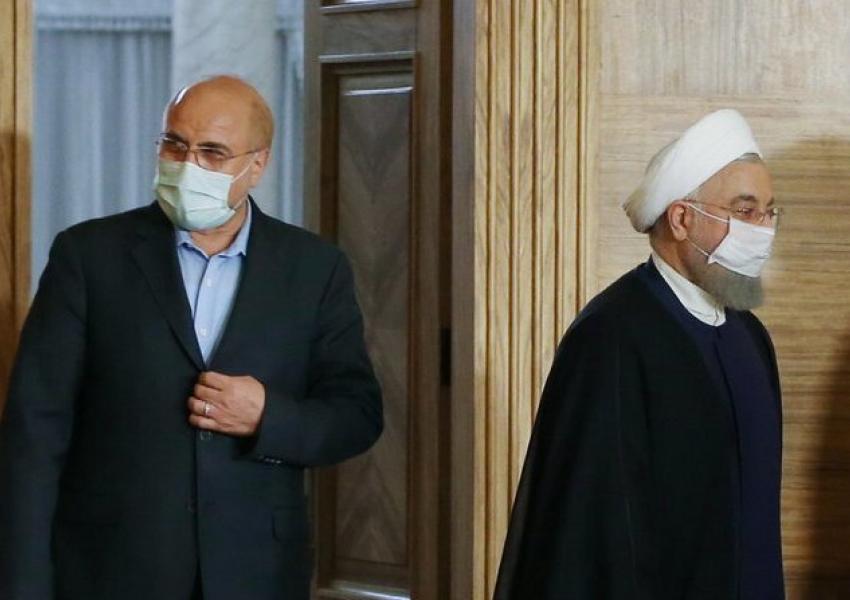
Parliament Speaker Portrays Iran's Economy To Be In Deadlock With No Way Out
The speaker of the Iranian parliament (Majles) Mohammad Bagher Ghalibaf says Iran cannot trust big powers, but chanting slogans against them cannot solve the country’s problems and the nation should rely on hard work.
Speaking at the Iranian Chamber of Commerce on Sunday January 24, Ghalibaf (Qalibaf) said that during the past years, Iran's economy has suffered from reliance on oil revenues and concessions offered to certain groups by the government.
He said: "We have tried many economic models but all of them gave rise to double-digit inflation. All of these models were based on oil revenues and privileges for rentiers," adding that in recent years, US sanctions and the coronavirus pandemic have further exacerbated the problem.
Ghalibaf’s somewhat candid remarks were a testimony to the unproductive and wasteful economic system in the country that cannot be compensated for by high oil revenues any longer.
The pandemic, he said, has further hurt economic growth and has paralyzed the oil and tourism industries among many others.
Iran did not have a big tourism sector and oil exports have dramatically decreased due to US sanctions imposed by former president Donald Trump since 2018.
Ghalibaf said that one of the root causes of Iran's problems is the structure of the government's budget. "This is a problematic structure. In the next Iranian year starting March 21, the government's expenditures will rise by 46 percent while its revenues will increase by a meagre 10 percent. The result is a 36 percent budget deficit."
Ghalibaf's estimate of the budget deficit is much lower than the 50 percent shortfall economists have predicted.
However, the Speaker acknowledged that Iranians are suffering because of rising prices, recession, unemployment, fluctuations in the rates of exchange, as well as poverty, discrimination and instability in the economy.
He suggested an increase in taxes, exports and other economic activities as ways of getting rid of an oil-based economy. However, he did not offer any practical solutions to do that. Nonetheless, he agreed that the government in Iran has never been good at tax collection as many dealers, merchants and smugglers evade paying taxes. He also complained about the burdensome bureaucracy in Iran.
His solution was correcting taxation and the structure of the budget, but again, he did not say how. Ghalibaf also claimed that Iran's exports have grown but did not say to what extent and during which period.
He promised that the Majles will act transparently about the budget bill and the country's five-year development plan to be offered by the Majles will be a different one, but did not say in what ways. However, he explained: "We are going to open the yokes that prevent the economy's mobility."
Speaking about financial corruption, Ghalibaf said corruption does not exist in the private sector. Instead, "it is the outcome of decisions such as allocating cheap foreign currency to certain businesspeople based on discrimination and nepotism.
All that said, Ghalibaf added that he expects the Chamber of Commerce members to work based on "resistance economy," an ill-defined concept offered by Supreme Leader Ali Khamenei as a solution for the problems created by US sanctions. Incidentally, the official appointed to further the idea of resistance economy is the same man who has come up with the problematic idea of giving foreign currency to selected businesses based on a preferential rate of 42,000 rials per US dollar, that is one fifth of the market rate, and rivalry over allocation of this foreign currency is believed by some, including Ghalibaf to be the root cause of corruption in Iran.
Considering that the preferential rate has been in place for less than two years, it cannot be singled out as the root cause of corruption. Iran’s state and clerical-controlled economy has always suffered from inefficiencies emanating from nepotism and political favoritism.








